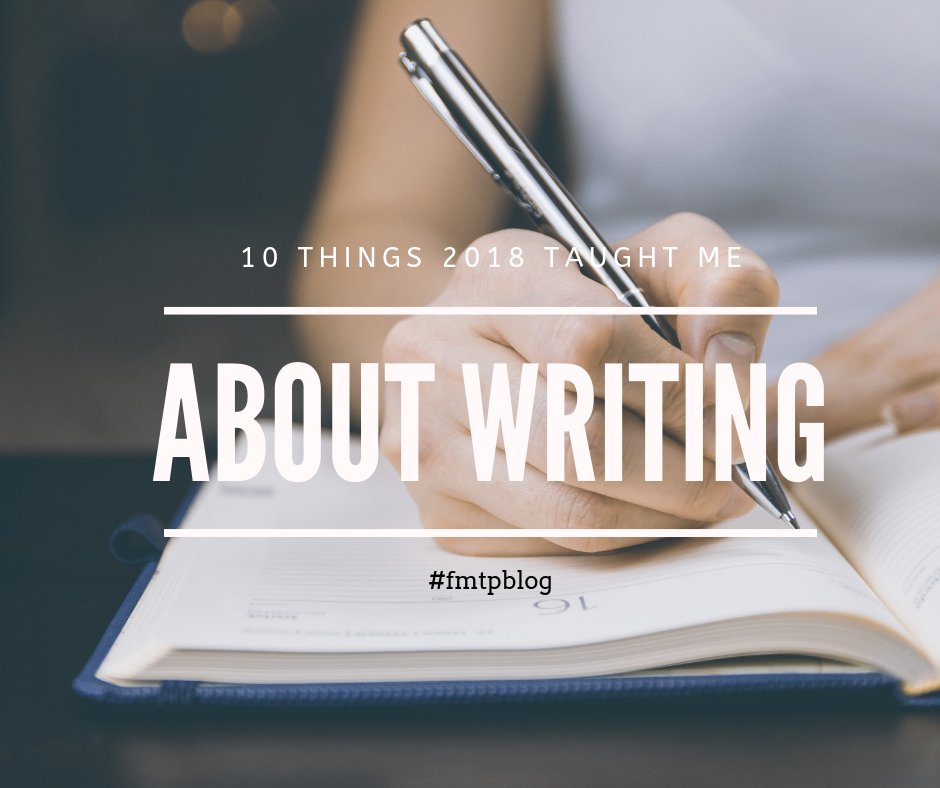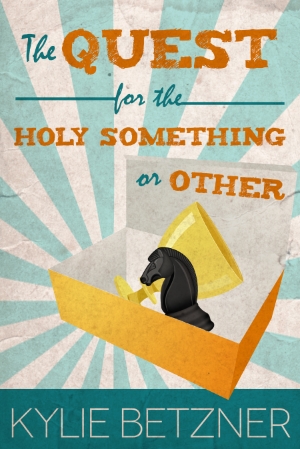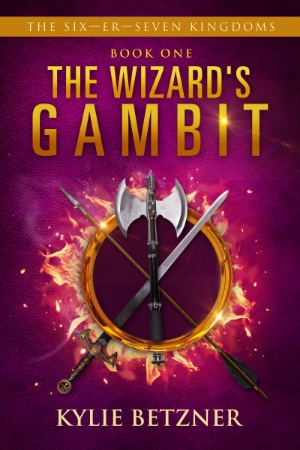It’s about that time again: Another year has passed—another opportunity to grow and learn who I am as a writer. In many ways, 2018 was my most challenging year yet. I didn’t meet most of my goals, I had unexpected health issues, and I had to step outside my comfort zone on multiple occasions. However, it was also a vastly rewarding year. Amazing new opportunities fell into my lap, I attended a fabulous writing conference, and I was reminded yet again why I love writing so much.
Writing is a tough journey for all of us. I’ve been writing since I was six, and one thing has never changed: Life can and will get in the way. But how you react to life’s trials determines how successful you are. I strongly encourage any writer, no matter how long you’ve been writing, to reflect on what the past year has brought you. You might be surprised how much you’ve grown!
For me, these were 2018’s life lessons about writing:
Writing takes perseverance. Some days, our muse is cooperative and shows up when we need it to. On others, it hoards those much-needed ideas. Stories don’t always hit us full in the face either; they often come in chunks—snippets, scenes, flashes of characters and conflict. And just as with any good idea, those tidbits need time to simmer, giving them a chance to meld. So this year, rather than waiting for my ideas to lead me where they want, I’m go to poke them, prod them, and show them who’s boss. In fact, I’ve dedicated a set number of weeks per stage on each project before transferring it to the next one. That way my mind is constantly churning out ideas and no one project sits for too long.
Burnout is a real thing. As much as I love writing, there still comes a point where I’ve had enough and getting the words down is like prying teeth loose. Don’t get me wrong; I feel immensely blessed to do what I love every day and have a career in it. But all of us need a break sometimes, even from the things we love most. Our bodies need rest and time to recover, giving new ideas a chance to foster. I’m trying to be more aware of that and have even built in two vacation weeks into my writing schedule for the year as well as two months at the beginning of each year to prepare and plan my goals for the next season. Staying focused but allowing time off as a reward is the type of organization I’ve sorely needed since the beginning of my current project, and so far, having that is paying off.
Being bold can boost your confidence. I’ve often spoken about writing what you don’t know but found it much harder to heed my own advice. After organizing my files on my computer, a task I’d put off for years until recently, I discovered a gem: a scene I’d written ages ago that had a narrative voice unlike anything I’d ever written, but in the best way possible. It was a snippet where I’d let myself go in my thought process, allowing myself to be as bold as I wanted in a character’s shoes, no matter if it fit my normal “style” or not. The result was a phenomenal narrative that stood in stark contrast to the pieces I’ve written up to this point. And you’d better believe it’s a tactic I’ll be using in the future.
The more accountability you have from others, the more you’ll push yourself. A few months ago, I took a leap of faith as a writer. I joined a weekly critique group and gained an incredible accountability partner. I wasn’t sure if I’d be able to keep up with everything, but I’m so glad I made the commitment. Both have had a tremendous impact on my productivity, resulting in more words down on the page and more edits completed even when I’m not writing something new. As it turns out, when you have six people expecting you to get something done, you’re more likely to deliver.
Spreadsheets are glorious. In the past, I’ve given myself deadlines, albeit flimsy ones, and I’ve made promises of word counts, release dates, etc. It’s not like I wasn’t on the right track with those steps, but there’s something about visual maps that really gets you in the right headspace for conquering the world—or at least finishing your book. It’s taken me two full weekends to do so, but I’ve created a detailed plan for the entire year. I’ve factored in time for my own writing projects while still accommodating my pre-existing deadlines I have from clients, and I’ve even thrown a marketing plan in there too. I made schedules, timelines, and even a chart to show my progress. And let me tell you, it’s changed EVERYTHING. I’ve been more productive in the last two weeks than I was in the last six months of 2018. Months! I’m sure spreadsheets and charts don’t hold that same kind of power for everyone, but for me, I needed that visualization, the reminder of where I am and where I want to be. Being able to track my progress is such an effective reward that I’m now hitting my goals every week.
Speaking of goals, setting detailed ones (and using apps to help you reach them, such as Todoist) can be a game changer. As I said, this isn’t the first year I’ve tried making a schedule—or using an app to help me. In past years, my halfhearted attempts have always failed when I get overwhelmed by the enormity of the task. (Needless to say, having anxiety really stinks.) But what changed this year was my approach. I didn’t go in expecting the first thing I tried to work. I used a more methodical mindset, trying different spreadsheets and ways to map things, and tossing out things that didn’t help me progress. It took trial and error before I hit on the right combinations, but it’s proven to be a successful endeavor, and I have the numbers to back it up.
I don’t read often enough. After having a miserable 2018 in terms of meeting my reading goals, I picked up a new book called Write Smart, Write Happy that was recommended to me by my editor. It’s motivated me to recommit to both my writing and reading goals, something I know will only help me further in growing in my craft. After all, we can learn a ton from reading others’ work, especially those who write better than us.
My writing muscles are flabby—too flabby. In my latest podcast episode, I talk about how writing is like exercising. Muscles don’t stay strong unless you use them. However, I once again did a terrible job at heeding my own advice, and I found that even writing something as simple as a blog post had become immensely difficult. It was like learning a second language all over again: The info was there, but recalling it was a nightmare. Now I have to rebuild that habit.
Pacing is everything. I didn’t even realize it was a struggle of mine, but as I’ve been editing book three of The Porcelain Souls, my critique group pointed out how my paragraph breaks and the structure of my sentences could be better. And they were absolutely right. Many of the scenes in the current book I’m working on for the series are so intense that they call for shorter, snippier sentences in parts to keep the pace where it should be. So now I know a specific area I need to study more and am adding it to my goal list for the year. I’ve already found a ton of great resources on the topic, including this article on the Helping Writers Become Authors site: https://www.helpingwritersbecomeauthors.com/scene-breaks/
I have a bad habit of making excuses, but even more than that, I’m an expert at psyching myself out. Last year, I became enemy #1 . . . to myself. I set weak goals that couldn’t stand up to the inner procrastinator in me. I’d see these tasks, and rather than turning them into manageable chunks, I’d let them lord over me as monumental obstacles whose proportions were so overblown they were basically caricatures. Piles upon piles of sticky notes laughed at me (okay, maybe not, but they did clutter my desk). And the idea of finishing the editing process for my book so I could finally publish it? Forget it. But the truth of the matter is, once I actually sat down and worked on something—anything—for just ten minutes, the words started flowing, and it was like I’d never quit. We writers are great at making things out to be harder than they have to be, swearing that we’re not good enough at x, y, or z to accomplish something worthwhile. And I get it; confidence can be a struggle for me too. But as the saying goes, sometimes you just have to park your butt in the chair and WRITE.




